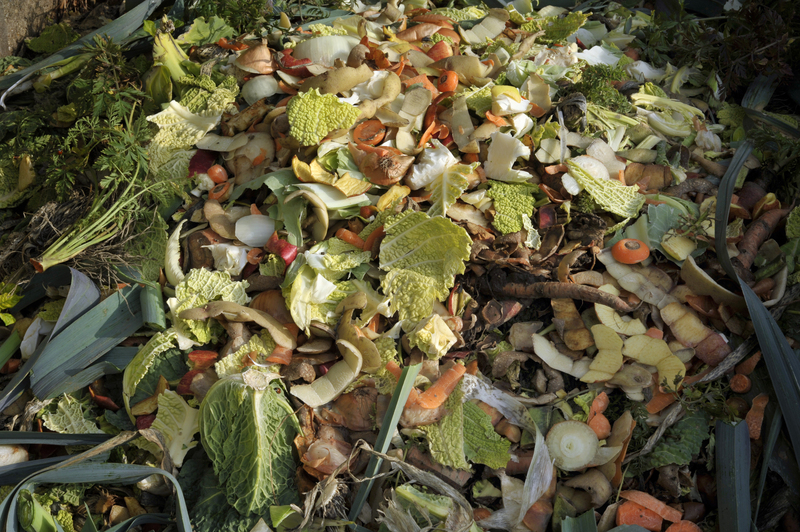Comprehensive Solutions for Effective Plant Pot Disposal
Plant pot disposal is an increasingly essential environmental consideration as gardening enthusiasts and commercial growers alike search for eco-friendly and practical approaches to managing old and unwanted plant containers. Disposing of plant pots correctly not only supports sustainable practices but also helps reduce landfill waste, minimizes environmental contamination, and promotes creative reuse in the garden community. In this comprehensive guide, we explore a variety of solutions for effective plant pot disposal, including recycling, reusing, upcycling, and responsible waste management strategies.
Why Effective Plant Pot Disposal Matters
Due to the rapid growth of gardening and landscaping across the globe, millions of pots--made from plastics, ceramics, biodegradable materials, and terracotta--are used each year. Many of these containers end up discarded after just one use. Mismanaged plant pot disposal creates significant environmental impacts:
- Plastic pots often end up in landfills, taking centuries to decompose and potentially leaching toxins into the soil.
- Discarded ceramic and terracotta pots break into non-biodegradable debris, cluttering open areas and gardens.
- Shoddy disposal misses opportunities for reuse and upcycling, wasting valuable resources.
Given these consequences, adopting comprehensive solutions for effective plant pot disposal is not just a personal responsibility, but a community-wide imperative.

Understanding Types of Plant Pots and Their Disposal Challenges
Before selecting the optimal way to dispose of your garden pots, it's crucial to identify what they are made from. Each type presents unique challenges and possibilities:
Plastic Plant Pots
- Pros: Lightweight, durable, cheap.
- Cons: Non-biodegradable, often unrecyclable in regular curbside bins due to type or contamination.
Ceramic and Terracotta Pots
- Pros: Attractive, porous for plant health, long lifespan.
- Cons: Heavy; break easily; rarely accepted in recycling streams; fragments persist in the environment.
Biodegradable and Compostable Pots
- Pros: Compost in home systems or break down in soil.
- Cons: Limited durability; not all "biodegradable" pots dissolve quickly; may require industrial composting.
Recycling Plant Pots: Options and Limitations
Understanding Local Recycling Programs
A common misconception is that all plastic plant pots can go directly into the domestic recycling bin. In reality, the recyclability of pots is highly dependent on:
- The large variety of plastics used (mainly polypropylene (PP) marked as #5, and sometimes unwanted polystyrene (#6) or other resins).
- Residual soil, roots, and plant debris often left inside the pots.
- Dyes and additives, such as carbon black pigment in black plastic pots, which cannot be optically sorted at recycling facilities.
How to Prepare Plant Pots for Recycling
To enhance successful plant pot disposal through recycling:
- Clean pots thoroughly by removing soil, plant material, and labels. Scrub with water and let them dry.
- Check resin codes (usually found on the bottom). Most municipal programs recycle #2 (HDPE), #5 (PP), but rarely #6 (PS) or unmarked plastics.
- Visit local garden centers: Many large retailers and garden centers provide take-back programs and recycling drop-offs for pots, trays, and cell packs.
- Consider specialized recycling: Look for national or regional initiatives such as the Ontario Plastic Pot Recycling Program (Canada) or nursery pot recycling centers in your region.
Reusing and Upcycling Plant Pots
*Reduce, Reuse, and Recycle* remains the mantra of eco-friendly living. Giving old plant pots a second life is an exceptionally effective solution that saves energy and reduces waste overheads.
Creative Reuse in the Garden
- Use smaller pots as seed starters or for propagating cuttings.
- Group large terracotta or ceramic pots to create container gardens or edible herb corners on patios.
- Repurpose cracked or broken pots as drainage materials in the bottom of new containers.
- Offer surplus pots to local gardeners, schools, and community groups, where they're invaluable for seasonal planting projects.
Fun Upcycling Ideas for Old Plant Pots
- Paint or decorate pots for unique planter art or whimsical garden ornaments.
- Stack or cut plastic pots to create bird feeders, fairy house villages, or garden totems.
- Turn pots upside down to make protective covers for young plants in early spring frost.
- Utilize ceramic shards in mosaic crafts, stepping stones, or flower bed edging.
By embracing imaginative reuse and upcycling, gardeners can minimize the frequency of plant pot disposal and even transform unwanted containers into conversation pieces!
Biodegradable and Compostable Pot Disposal
A rise in eco-friendly gardening products means more plant pots are marketed as biodegradable, compostable, or made from organic materials like coir, peat, compressed paper, or cow manure. To dispose of these responsibly:
- Bury directly in the garden: Many biodegradable pots are intended to be planted whole--roots will break through as the pot decomposes.
- Add to home compost: Double-check if pots are certified compostable. Tear or cut into small pieces to speed up decomposition.
- Industrial composting: Some "biodegradable" plastics require specific temperatures and conditions only available in commercial compost facilities. Always read the packaging for instructions.
Note: Not all materials labeled as "biodegradable" are created equal. Some can persist in the environment for years or break down into microplastics. It's important to select products from reputable brands and check for certifications.
Plant Pot Take-Backs, Swaps, and Community Programs
Many nurseries, garden retailers, and landscape supply centers are increasingly offering plant pot return programs to encourage customers to bring back empty used pots for recycling or reuse by the business. To participate:
- Save your pots through the season and keep them stacked and clean.
- Call ahead or check business websites for details--some only accept specific types or brands.
- Look for community-based plant pot swaps or giveaway events, where gardeners can exchange containers and reduce the need for new ones.
- Non-profit organizations or city waste reduction programs regularly host drop-off events or maintain permanent collection bins for garden plastics.
By participating in these initiatives, gardeners help create a closed-loop system, supporting businesses in recirculating pots and reducing the need for raw material extraction.
Responsible Disposal: When Reuse and Recycling Aren’t Possible
Some plant pots simply cannot be recycled or reused due to damage, contamination, or unsuitable materials. In these cases:
- Do not burn plastic pots--this releases toxic chemicals harmful to health and the environment.
- Avoid illegal dumping: Pots left in wild areas, parks, or vacant lots contribute to litter and can injure wildlife.
- Carefully check local waste guidelines: If a pot must be discarded, bag and label it according to municipal waste instructions, and avoid mixing with yard waste or green bins.
Whenever possible, attempt to clean, repair, or repurpose containers before turning to landfill disposal. This ensures the environmental impact is kept to a minimum.
Innovations and Future Directions in Plant Pot Disposal
The gardening industry is responding to growing demand for sustainable plant pot disposal with several innovations:
- Development of plant pots from recycled plastic waste, closing the loop on material use.
- Colorless or light-colored plastics that are more easily sorted and recycled.
- Advanced bioplastics derived from renewable resources, such as cornstarch, hemp, or bamboo.
- Government and non-profit collaborations for regional collection and sorting programs.
- Encouragement of consumer education and transparent labeling for recyclability or compostability.
Staying informed and supporting these developments accelerates the shift toward more effective plant pot disposal solutions for everyone.

Best Practices for Sustainable Plant Pot Use and Disposal
- Buy only what you need: Limit the accumulation of excess pots by planning plant purchases carefully.
- Choose reusable pots: Favor materials that last many seasons, such as thick plastic, ceramic, or recycled-content pots.
- Support retailers with take-back programs: Shop at nurseries that participate in recycling or reusing containers.
- Stay up-to-date: Research your local facilities' and programs' accepted materials and criteria.
- Share and collaborate: Offer surplus pots to others, and encourage your garden club or community group to organize swaps or collection events.
Summary: Towards Comprehensive and Effective Plant Pot Disposal
Adopting comprehensive solutions for effective plant pot disposal requires a multi-faceted approach: recycling and returning where possible, repurposing with creativity, composting when appropriate, and responsibly disposing only as a last resort. Every step taken--whether cleaning a pot for recycling or passing it along to a neighbor--contributes to a healthier environment and a more sustainable gardening culture. By staying proactive and informed, both individuals and communities can significantly reduce the impact of plant pot waste for generations to come.
For the green-thumbed and environmentally conscious alike, thoughtful plant pot disposal is a small but powerful act towards a cleaner, greener future.



